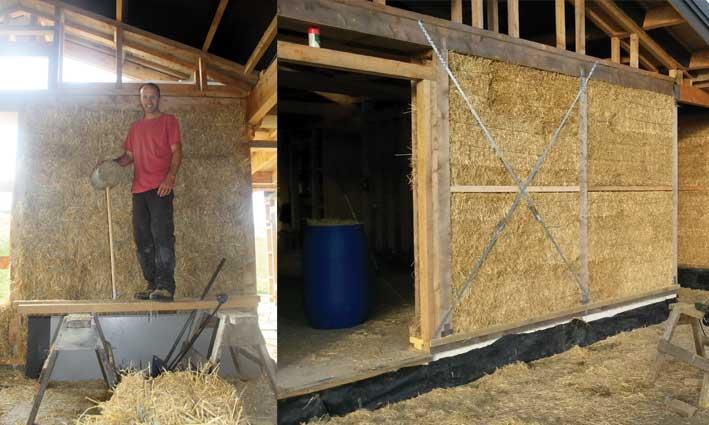I first met Ewan Briggs when we were working together for a Sydney sustainability consultancy on projects such as reducing a company's carbon emissions, considering human rights in lending decisions and reducing and recycling waste. He had just sailed from the UK to Australia and already then, almost 10 years ago, he was a massive inspiration to the whole office. Whatever venture he touched acquired a green fling of innovation and excellence. He is not into promoting himself or counting the number of 'likes' on his blog (21cstraw.wordpress.com), but rather gets on with what needs doing to make our world a more sustainable place.
How did you first become interested in sustainability?
In 2004, I had a conversation with my sister about unsustainable fishing which led me to read Charles Clover's The end of the Line. This opened a whole can of worms for me. Essentially, I thought that if this was the way we treated our oceans, in what other areas are we mistreating the planet? This led me on a learning experience that continues to this day and has covered food, energy, building, water, agriculture and climate change, to name a few.
I changed my career from IT to sustainability, began a second Master's Degree in renewable energy and sustainable building design and got a job with the Carbon Trust in London. After a few years there, I decided to move to Australia. I bought a neglected racing yacht, made it ocean-ready and took a year off to sail to Sydney via the Panama Canal. In Sydney, I sold the boat and became a sustainability consultant, specialising in carbon and energy.
After a couple of years there I realised it was time for me to 'walk the talk' and decided to move to New Zealand, buy some land, build a natural, low-energy, passive solar home and learn how to grow some of my own food. Over the past few years I've developed skills in natural building design and construction - including timber framing, plastering, tiling and just about everything in-between.

So what comes next?
I've done a permaculture design course and am implementing some of the principles and techniques in our garden, and establishing a food forest. As the house is approaching completion, I'm turning my design focus to the outside, to harness the renewable energy potential we have onsite, and I have plans to convert an old washing-machine motor into a wind turbine.
I've also got a long list of potential social enterprises that I've been adding to over the last few years and I'm keen to get started on turning some of them into reality - as and when I get some more time away from my current priorities of family, the house and our food and energy production.

Can you share some of those social enterprise ideas with us or are they top secret?
No secrets - as Elon Musk says: if we were together on the sinking Titanic and I have a great idea for a bucket, it's in the interests of us both for me to share it and work together. I believe that if we are to have a sustainable civilisation in the future, we're going to have to collaborate and not compete.
My lead contender is using biochar to take what is often viewed as a waste stream to help address a number of issues, including carbon sequestration, soil fertility, fertiliser use, nutrient run-off and water quality - all of which are major issues both in New Zealand and worldwide. The idea bank is very diverse - from sailing to building, waste, energy and food production.
What else do we need to address to make our future more sustainable?
At the moment, almost everything we do in our western civilisation is profoundly unsustainable. Our system relies on growth to function. There is perhaps nothing less sustainable than growth and until we address this approach to growth we are just rearranging the deckchairs on the Titanic.
It's clear that, under our current political leadership systems, the change we need isn't going to happen - certainly not fast enough and arguably not at all. So the change needs to come from the bottom up.
You are a sailor. How has this influenced your sustainability journey?
Sailing teaches you the potential power of the elements whilst also enjoying a natural environment. Long-distance cruising has taught me a lot about self-reliance, responsibility and independence. In this environment, you're responsible for all your own energy, food, water, safety, shelter and transport. There's a lot to learn that we can apply in our wider lives.
What comes to mind when thinking 'Malta and Sustainability'?
My view is that smaller communities are more functional than larger ones when it comes to sustainability issues. Moreover, it's easier on an island to take responsibility for - and ownership of - your environment. So, I'd like to think that a relatively small island community like Malta could turn things around and show the rest of us what's possible and necessary.
Do you have you any favourite quote to share with our readers?
"You reap what you sew."